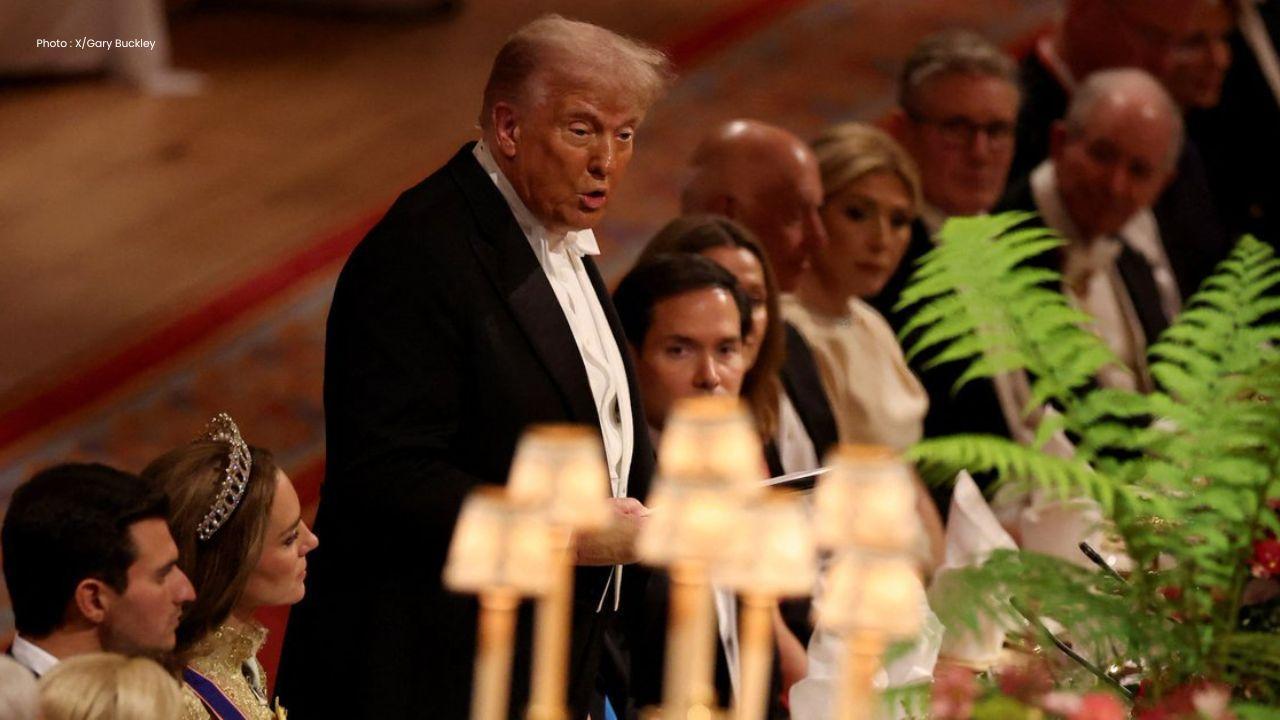
Post by : Abhinav Rana
The pageantry is over but the stakes have never been higher. Following a grand royal welcome, Britain’s Prime Minister Keir Starmer and U.S. President Donald Trump shifted the focus to diplomacy and investment during Trump’s state visit. At the heart of their talks lies a massive £150 billion commitment, one that weaves together technology, energy, life sciences and geopolitics. The ceremony may have dazzled, but what followed could reshape the UK’s economic and diplomatic trajectory.
Starmer and Trump announced a sweeping investment package valued at approximately £150 billion, targeting sectors such as artificial intelligence, nuclear energy, and life sciences. Major tech players including Microsoft, Nvidia, Google and OpenAI are part of this deal, pledging around £31 billion in investments over coming years. This underscores a mutual ambition: to position the UK as a hub for innovation and to deepen economic ties with the U.S.
The “Tech Prosperity Deal,” as officials have dubbed part of this investment push, aims to cement collaboration in next-gen technologies. AI and quantum computing are front and centre, as are newer initiatives around civil nuclear energy. The involvement of tech giants shows that both governments see future prosperity tied to innovation. For Starmer, showcasing this deal helps counter domestic economic pressures and boost public confidence in his government’s global posture.
Alongside economic promises, diplomatic friction points are on the table. Starmer is expected to push Trump for stronger U.S. action on Russia’s war in Ukraine and for clearer policies regarding Gaza. While both leaders have expressed condemnation of Russia’s invasion, differences remain especially over trade dependencies and energy policy. On the Middle East front, Starmer aims to reconcile the UK’s humanitarian concerns with its geopolitical interests, pressing for a more consistent U.S. stance.
While investment is the headline, the push on trade remains controversial. Some British industries are hoping for tariffs on steel, aluminum, and other goods to be eased, but officials have started dampening expectations. Domestic political pressures also loom: free speech laws, recent controversies around host broadcasters, and questions about past diplomatic appointments (including links to Jeffrey Epstein) are all expected to surface. Starmer must balance raising investment while navigating these tensions.
The state visit filled with royal pomp, military pageantry, and ceremonial honours is also a reminder of the so-called “special relationship” between the UK and U.S. Trump praised Britain’s tradition of law, liberty and speech, while Starmer has sought to leverage historical and diplomatic ties to strengthen future cooperation. For many observers, the investment package signals that both sides want to show more than words, they want concrete commitments to shared values and mutual benefit.
This barrage of investment offers more than just financial promises, it could help tackle sluggish GDP growth, underinvestment in infrastructure, and brain drain in key sectors. The infusion of capital from U.S. tech firms may accelerate R&D, build new facilities, create jobs, and augment the UK’s pipeline in green energy and future tech. On a global stage, stronger UK-US links help Britain navigate a post-Brexit world seeking alignment and competitiveness.
After the cheers and speeches, hard work begins. Implementation will be closely watched: how quickly tech firms follow through, whether regulatory red tape inhibits projects, and how policy alignment on trade and foreign affairs holds under pressure. Meanwhile, whether Starmer can deliver domestic wins from this visit and maintain coherence among his government amid public scrutiny will define the political fallout from what has been framed as one of the most consequential foreign affairs moments of his premiership.
#trending #latest, #Starmer Trump investment, #UK-US tech deal, #foreign affairs UK, #£150B investment, #Ukraine policy, Gaza discussions
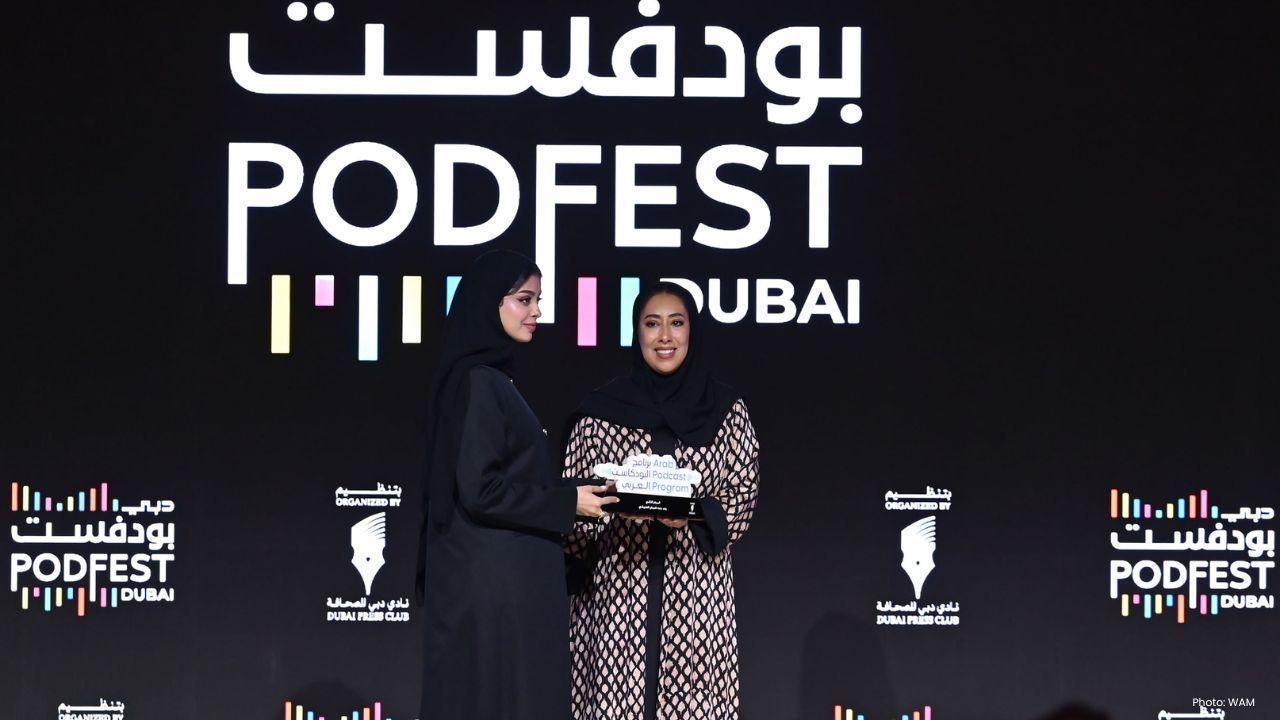

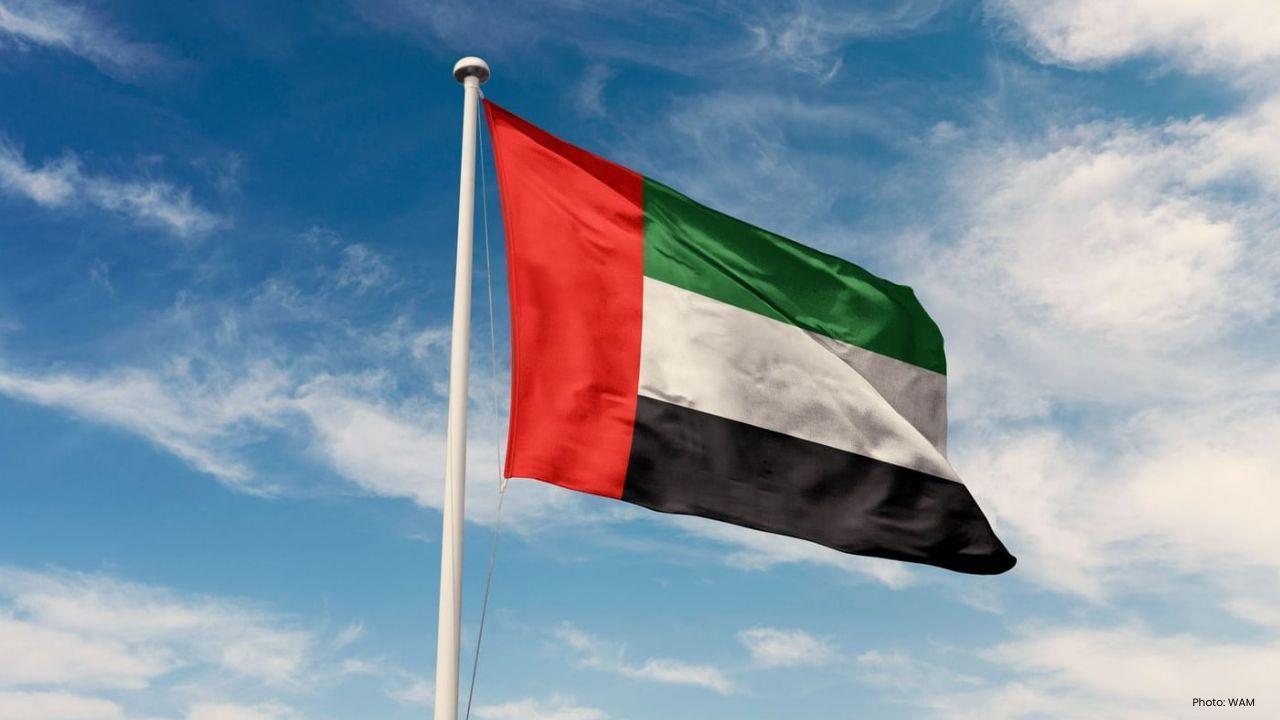
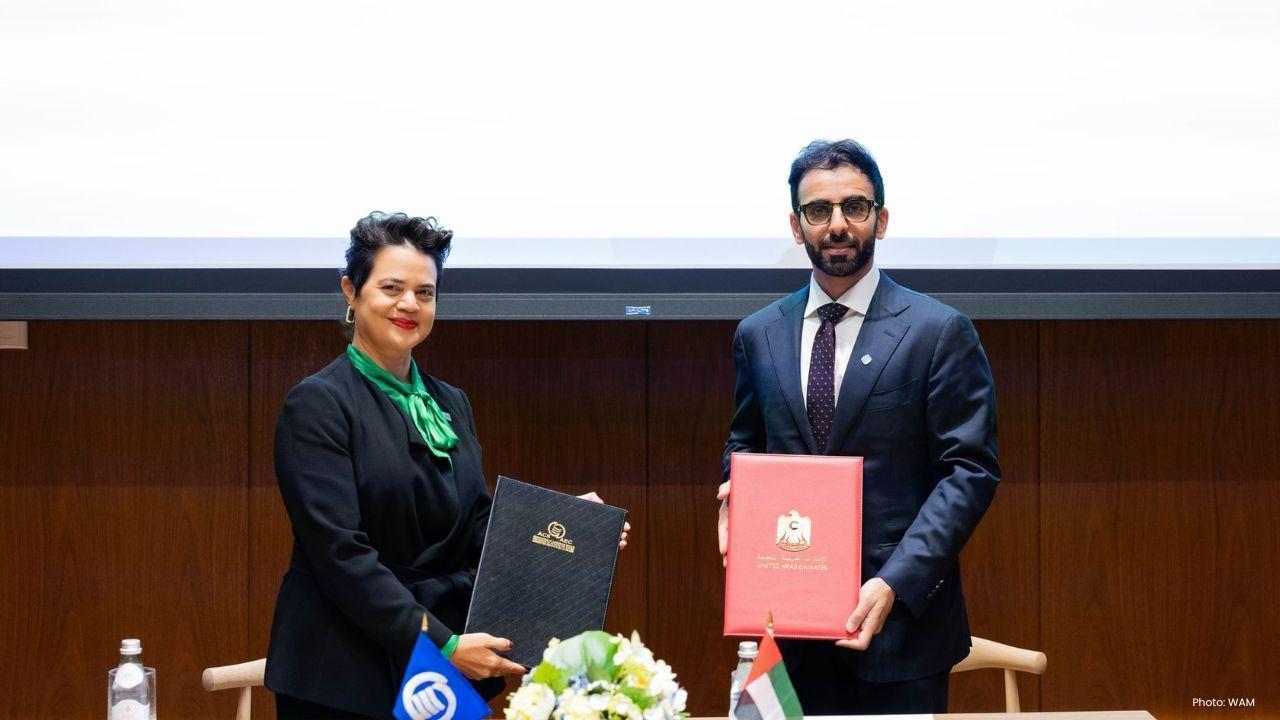


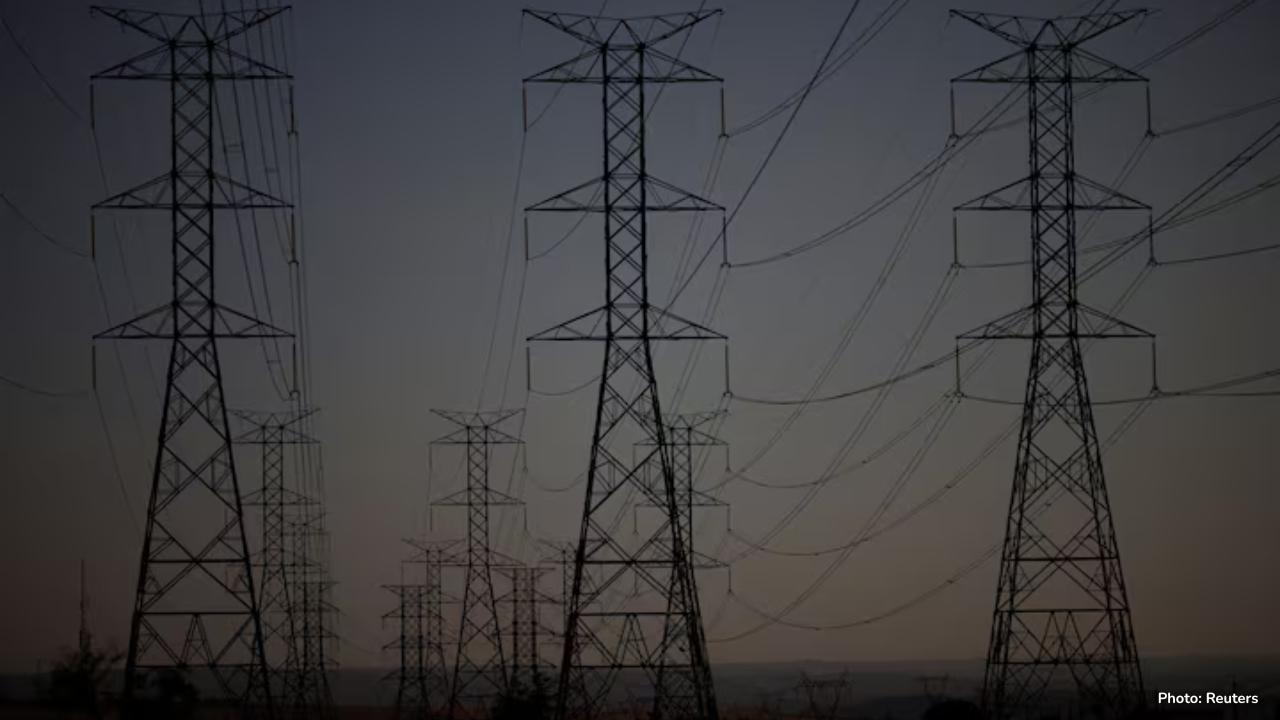

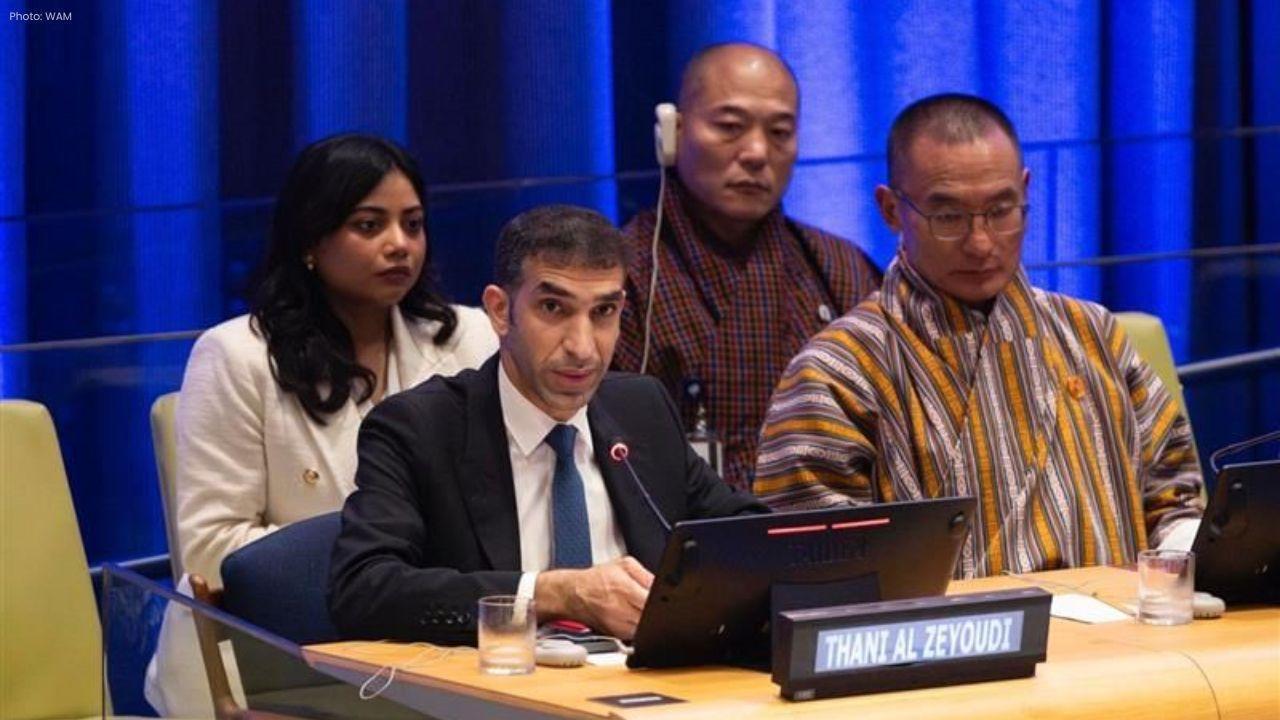

OpenAI's Revenue Soars to $4.3 Billion in First Half of 2025
OpenAI's revenue reaches $4.3 billion in the first half of 2025, marking a 16% increase from the pre

UAE Leaders Send Condolences to Saudi King Over Princess Abta's Death
UAE rulers and crown princes sent heartfelt messages to King Salman, mourning the passing of Princes

Brazil's Surplus Clean Energy Attracts Crypto Miners
Brazil's excess renewable energy is luring cryptocurrency miners. Companies like Tether and Renova E

Visa Tests Stablecoins to Make Global Payments Faster
Visa is testing stablecoins for international payments, aiming to speed up transactions and reduce t

Opera Unveils Neon AI Browser for Smarter Web Browsing
Opera introduces Neon, an AI-powered browser that automates tasks and enhances privacy, aiming to re

Albanese Visits Sheikh Zayed Grand Mosque in Abu Dhabi
Australian PM Albanese tours Sheikh Zayed Grand Mosque, highlighting peace, tolerance, and cultural